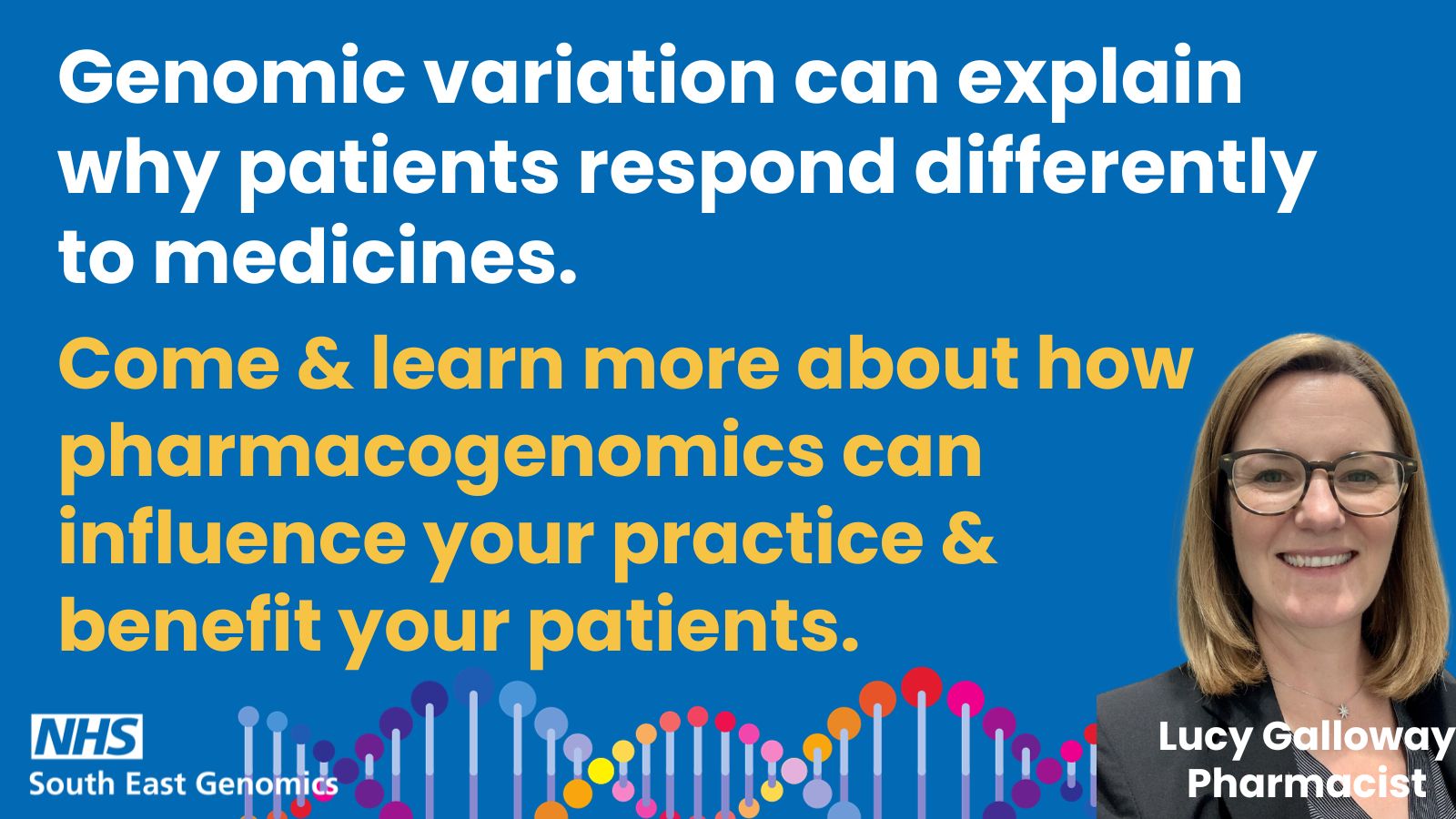
Genomics isn’t new, but it can often be thought of as a niche subject that’s only relevant to pharmacists who specialise in particular areas.
This World Pharmacist Day we’re celebrating the many different pharmacists who are using genomics in their every day practice and encourage others to get involved.
Lucy Galloway is the Pharmacy Lead at the South East Genomic Medicine Service. She runs a rapidly growing professional network for pharmacists who are interested in genomics.
“Genomics is having a huge impact on many aspects of healthcare including diagnosis, disease screening, disease risk stratification, and to make treatment decisions. Of particular interest to me as a pharmacist is pharmacogenomics, which enables us to explore the influence of the genome on drug responses.”
“Even if you’re not doing a specialist role, the principles of genomics are relevant to every pharmacist. For example, around 8% of us have common genetic variants that mean we are unable to metabolise codeine into its active compound morphine. This means we wouldn’t benefit from any of codeine’s analgesic effects. Similarly, around 2% of us have a genetic variant that means we are at risk of more severe side effects associated with a rapid conversion from codeine into its active metabolites. Understanding how someone experiences medicine is the first principle of a patient-centred approach to medicines optimisation, and is a great example of how the principles of genomics can be applied in a similar way to the principles of pharmacology and therapeutics to explain why patients respond differently to medicines.”
In a series of conversations to mark World Pharmacist Day, we have been talking to a range of pharmacists who, like Lucy, are passionate about the difference genomics can make for patients.
In today’s NHS, many pharmacists are taking on extended or specialist roles which often include taking consent, requesting, and discussing genetic test results with patients and their families. One example is Alison Warren who is a consultant pharmacist specialising in cardiology in Sussex. Alison runs a clinic for people who have high cholesterol and many of these people may have a genetic condition called Familial Hypercholesterolaemia, also known as FH.
“Some people (around 1 in 250) have a genetic condition which causes their cholesterol levels to be high regardless of how healthy or active they are. People with FH will often have a heart attack or a stroke at an early age. That’s why it’s so important that we identify them early and we can intervene with the right lifestyle changes and medication.”
Alison spends time with her patients talking and exploring if other people in their family may also have had high cholesterol. If she suspects FH, then she will refer them for genetic testing. If they prove to be positive for FH, Alison will also refer the rest of the family for testing.
Currently only 10% of people who have FH have been diagnosed, and people like Alison are working hard to help change these statistics.
“Preventing cardiac events in my patients is the key priority, but my role also crucially helps to diagnose other members of their family and prevent heart attacks and strokes for them too.”
Alison has long been fascinated by what we can now discover from our genome.
“If I’m seeing a patient after they’ve had a heart attack or stroke at a young age, many of them simply want to know what was the cause. Thankfully genomics can now offer some of those answers. I’m excited about what other questions genomics may be able to help us answer in the future.”
The NHS is committed to become the first national healthcare system to embed genomics into our day to day care.
